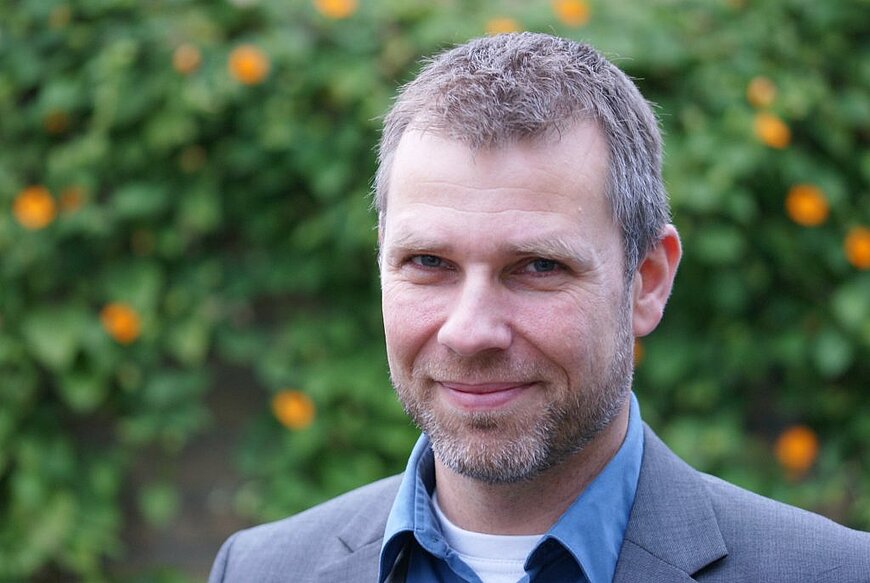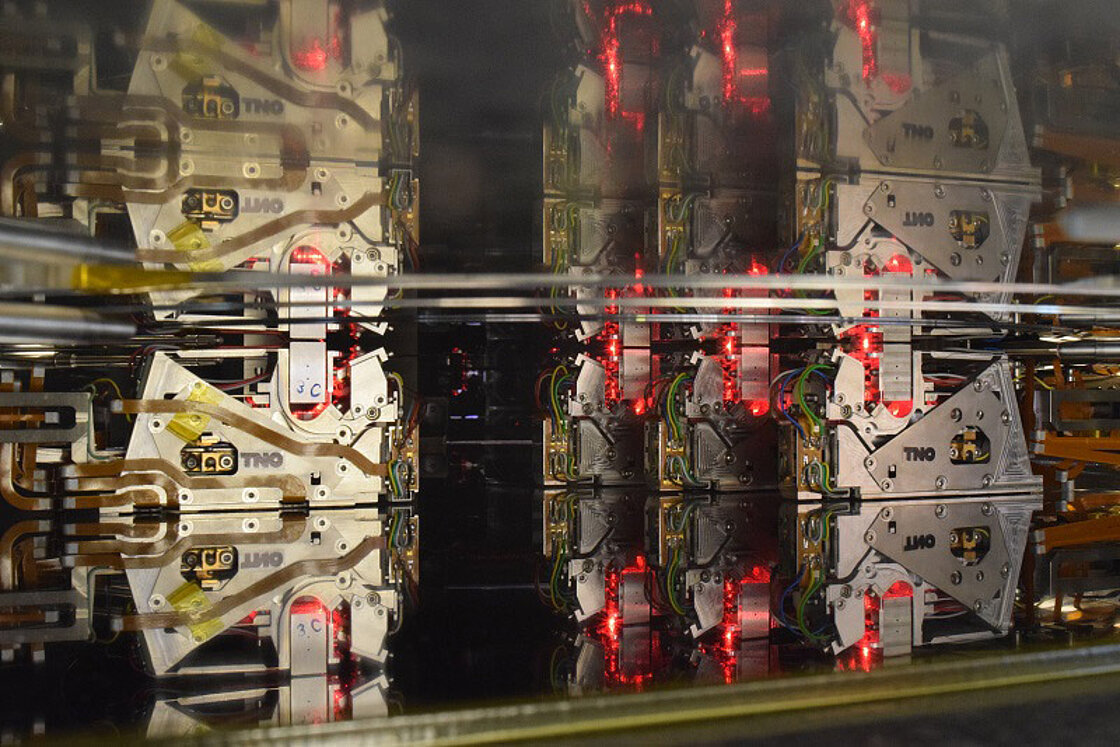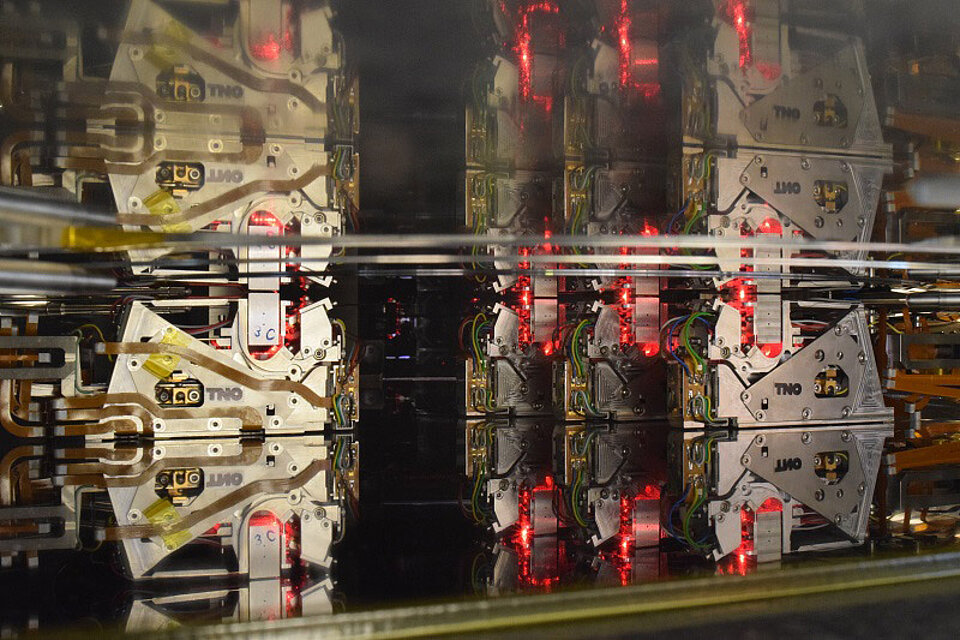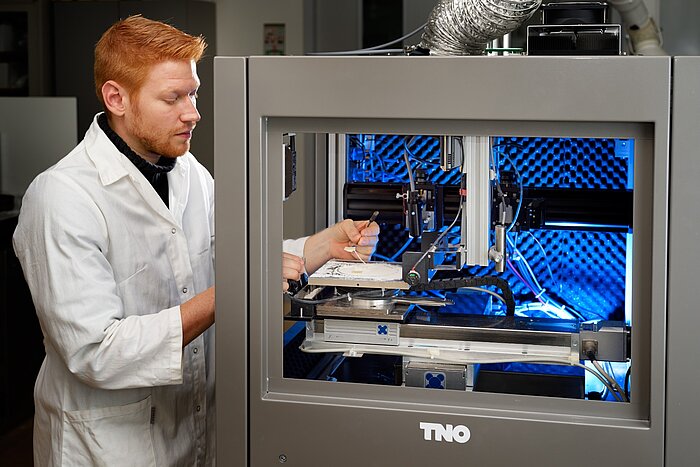Screening for cancer and neurological diseases using light
Arjen Amelink is a senior scientist at the Dutch research institute TNO. He works in the Bio photonics research program which is aimed at detecting abnormalities in human tissue by using light.
Together with experts in various disciplines Arjen develops optical screening and monitoring tools to detect different types of cancer, cardiovascular and neurological diseases in an early stage. A lengthy but extremely rewarding process. ‘What I do is extremely motivating, has impact on society at a personal level and helps saving people’s lives.’

TNO is a Dutch non-profit organisation for applied scientific research. It was founded to enable industry and government to apply scientific knowledge. TNO works together with governments, universities and companies. It connects people and knowledge to create innovations that boost the competitive strength of industry and the well-being of society in a sustainable way. It focusses on transitions in five social themes and bridges the gap between universities that mostly perform fundamental research and companies that are mostly interested in research that is directly related to everyday practice.
At TNO 2,600 professionals work on innovation. Physicist Arjen Amelink is one of them. “What I work on is applying optical technologies,” Arjen explains. “For this, various definitions are used such as optics or photonics, but it all boils down to manipulating light for various purposes. In my case I use light for medical goals such as early diagnosis of diseases.”
Light-tissue interaction for detecting cancer in a curable stage
“Our current projects are all about understanding and utilizing light-tissue interactions for diagnostic purposes. One of the projects I work on is aimed at detecting cancer in an early, curable stage by developing an accessible, cost-effective, non-invasive screening tool. The other project is about detecting cardiovascular as well as neurodegenerative diseases such as Alzheimer’s and Parkinson’s disease at an early stage. For this we are developing novel optical cameras for screening and monitoring of these diseases.”
Adding direct value to health care
“The research we do at TNO is about developing optical tools that have direct added value in health care. What makes it exciting is that the research we perform is very multi-disciplinary: physicists, biologists, neurologists, cardiologists and ophthalmologists are all involved in these projects. Together we think of what clinical problems should be solved, which (optical) parameters need to be measured to solve the clinical problem, and which technologies are most likely to be transferred to clinical practice.”


Have impact on human lives
“Spending years on doing fundamental research didn’t appeal to me as I really wanted to have an impact on people’s lives. So that at the end of my career I can say that I have directly contributed to society at a personal level. That I in fact helped saving human lives by preventing diseases. For that reason -after a short detour at Philips- I started working at the Erasmus Medical Centre after my PhD. After having worked there for a period of twelve years, I now work for TNO where academic research, medical applications and economic viability come together. So the tools I work on now are really close to being adapted in daily practice.”
Always keep the final goal in mind
“What I do, is still scientific and achieving results takes time, but you get used to that. I always have our final goal of creating health impact in mind and when we encounter challenges and solve them that gives me a lot of energy. When you get to prove speculative hypotheses that can potentially have a lot of impact on society, such as in the case of optically detecting the field effect of cancer, or early detection of Alzheimer’s disease through the eye, that gives me an absolute wow-feeling.”
